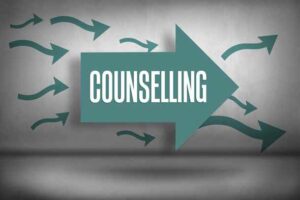If you or someone you know is struggling with an eating disorder, it is important to get help. Eating disorders can be very dangerous and can cause physical and emotional damage. In this blog post, we will discuss the different types of counseling for eating disorders, as well as the benefits of each type. We will also provide a comprehensive guide to finding a counselor who specializes in eating disorders.
Contents
Understanding Eating Disorder Counseling
 An eating disorder is a serious mental illness that can have a profound effect on an individual’s physical and emotional health. . It can help people with eating disorders to understand their illness, develop healthy coping mechanisms, and ultimately recover from their disorder.
An eating disorder is a serious mental illness that can have a profound effect on an individual’s physical and emotional health. . It can help people with eating disorders to understand their illness, develop healthy coping mechanisms, and ultimately recover from their disorder.
Eating disorder counseling is a process that can help individuals with eating disorders develop healthier relationships with food.
Types Of Eating Disorders
There are different types of eating disorders: anorexia nervosa, bulimia nervosa, and binge eating disorder. Each type of eating disorder requires different types of counseling.
Anorexia nervosa: People with anorexia often restrict their food intake to the point where they are dangerously underweight.
Bulimia nervosa: People with bulimia often feel out of control when they are bingeing.
Binge eating disorder: People with binge eating disorders often feel out of control when they are bingeing.
Thus eating disorder counseling can help people to understand their illness, develop healthy coping mechanisms, and ultimately recover from their disorder.
How Does Counselling Work In Eating Disorders?

Counselor work on eating disorders as they work collaboratively with patients to develop a treatment plan. Counseling for eating disorders typically focuses on helping the individual to develop a healthy relationship with food.
Counselors also work with individuals to help them cope with the challenges and stresses of having an eating disorder.
- The severity of the disorder: The first step in eating disorder counseling is to assess the severity of the disorder. Counselors will ask about the frequency and intensity of bingeing, purging, and restricting behaviors. Counselors will also ask about the impact of the eating disorder on the individual’s quality of life.
- Treatment plan: Counselors will work with the individual to develop a treatment plan. The treatment plan will be tailored according to the needs of the individual.
If you or someone you know is struggling with an eating disorder, counseling can be an important part of treatment. Counseling can help people with eating disorders to understand their illness, develop healthy coping mechanisms, and ultimately recover from their disorder.
Different Types Of Eating Disorder Counselling

Some common types of counseling include:
Cognitive behavioral therapy (CBT)
It focuses on helping you to change the negative thoughts and behaviors that are associated with your eating disorder.
- Identify negative thinking patterns: It focuses on helping you to identify the negative thinking patterns that contribute to your eating disorder.
- Challenge distorted beliefs about food, weight, and body image: This type of therapy focuses on helping you to challenge the distorted beliefs about food, weight, and body image that contribute to your eating disorder.
- Change unhealthy eating behaviors: This type of therapy focuses on helping you to change the unhealthy eating behaviors that are associated with your eating disorder.
- Develop a healthy relationship with food: This type of therapy focuses on helping you to develop a healthy relationship with food.
- Learn how to cope with difficult emotions: This type of therapy focuses on helping you to learn how to cope with the difficult emotions that are associated with your eating disorder.
- Build a support system: This type of therapy focuses on helping you to build a support system of family and friends who can help you in your recovery from an eating disorder.
Interpersonal psychotherapy (IPT)
This type of therapy focuses on your relationships with others and how they may be affecting your eating disorder. This includes :
- Identifying and resolving interpersonal issues: This may involve working through conflict in your relationships, improving communication skills, and learning how to better express yourself.
- Improving self-esteem: This may involve exploring your beliefs about yourself, your body, and your worthiness.
- Improving communication skills: This may involve learning how to better express yourself, both verbally and non-verbally.
- Exploring your beliefs about yourself, your body, and your worthiness: This may involve challenging negative thoughts and beliefs that contribute to low self-esteem.
- Learning how to cope with stress: This may involve identifying and avoiding triggers, as well as developing healthy coping mechanisms.
If you are struggling with an eating disorder, counseling can be an important step in your recovery. Eating disorders are complex and often require specialized treatment. Counseling can provide you with the support and skills you need to recover from an eating disorder and live a healthy, happy life.
Family-based therapy (FBT)
This type of therapy focuses on involving your family in your treatment. It can help :
- Identify and resolve conflict within the family: This may involve family members working through any issues that may be contributing to your eating disorder.
- Improve communication within the family: This may involve family members learning how to better communicate with each other and express their emotions in a healthy way.
- Increase support from the family: This may involve family members becoming more involved in your treatment and providing emotional and practical support.
- Decrease conflict within the family: This may involve resolving issues that may be contributing to the eating disorder.
If you have an eating disorder, your family can play a vital role in your recovery. Family-based therapy can help improve communication and increase support from your loved ones.
Dialectal Behavior Therapy
DBT is a form of cognitive-behavioral therapy that focuses on helping people learn skills to cope with stress, regulate their emotions, and boost self-esteem.
DBT is typically conducted in group therapy sessions, though individual sessions may also be used. The therapist will help the client identify negative thought patterns and behaviors and then work on changing them. DBT skills training usually includes modules on mindfulness, emotional regulation, interpersonal effectiveness, and distress tolerance.
This type of counseling helps in dealing with the core issues that are driving eating disorder behaviors. It also helps in developing a more positive relationship with food and one’s body.
Acceptance and Commitment Therapy
If you are seeking treatment for an eating disorder, you may have come across the term “acceptance and commitment therapy” (ACT). It is a form of cognitive-behavioral therapy that focuses on helping individuals accept their thoughts and feelings without judgment, and commit to taking action in line with their values.
While ACT is not specifically designed for treating eating disorders, it can be an effective treatment for individuals with these disorders. Studies have shown that ACT can help reduce symptoms of anorexia nervosa and bulimia nervosa, and it may also be helpful in treating binge eating disorders.
Conclusion
It may be concluded that eating disorder counseling is a process that can help individuals with eating disorders develop healthier coping mechanisms and learn to make better choices regarding their food intake. Counseling can also provide support for family members and friends who are struggling to understand and cope with the situation. If you or someone you know is struggling with an eating disorder, don’t hesitate to reach out to a counselor today.
For further information and suggestions, please contact Therapy Mantra. We have a team of expert therapists that can help you overcome this problem. Get in touch with us right away to learn more about our services. You may also make an online therapy session or download our free Android or iOS app.


